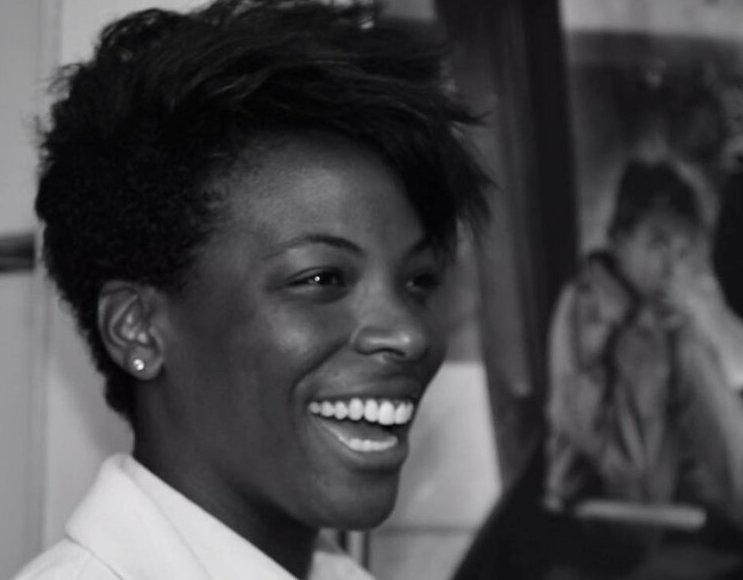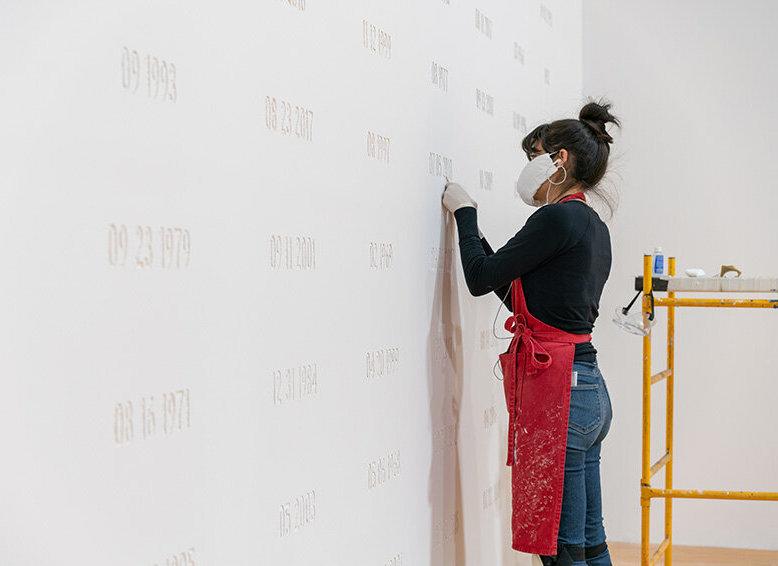
Creative Collaborations
Artists play an indispensable role in the movement to combat the climate crisis and to fortify community resilience in the face of climate-related challenges.
Science and data alone are clearly insufficient to address the existential challenges we now face. It will be impossible to solve the climate crisis, across Texas and beyond, without diverse and powerful storytelling that helps ground us in our shared humanity, create meaning from complexity, and maintain our collective capacity for hope in a better future.
UT researchers team with artists to prepare Texas for tumultuous future
UT Dance Repertory Theater Performances
Through the fellowship we are most interested in the collaboration process, developing new strands of inquiry, the sharing of skills and methodologies between artists, researchers, and community partners, and building authentic relationships that can lead to longer-term transformative projects for the future.
*2022-2023 Planet Texas Artist Fellowships will be announced in late September. If you are interested in learning more about this program please contact Heidi Schmalbach, PT2050 program director.
Planet Texas 2050 Artist Fellowship
The Planet Texas 2050 Artist Fellowship is a cohort-based fellowship for multi-disciplinary artists both in and outside of UT Austin, organized to catalyze and support meaningful collaboration between artists, climate and resilience researchers, and other stakeholders. The fellowship grants selected artists time and resources to explore ideas and concepts central to Planet Texas 2050 research over the course of an academic year.
Through the fellowship we are most interested in the collaboration process, developing new strands of inquiry, the sharing of skills and methodologies between artists, researchers, and community partners, and building authentic relationships that can lead to longer-term transformative projects for the future. An additional goal of this initiative is to cultivate a supportive community of practice for professional artists working with researchers, particularly surrounding issues related to climate science, community-based adaptation strategies, and resilience. To this end, throughout the fellowship period, the cohort meets with PT2050 researchers and staff to share methods, emergent ideas, and questions. Though the fellowship does not require a final artistic “product,” fellows have the opportunity to propose collaborative projects with PT2050 researchers and community partners for further development.
2022-2023 Artist Fellows
Planet Texas 2050 Artists-in-Residence
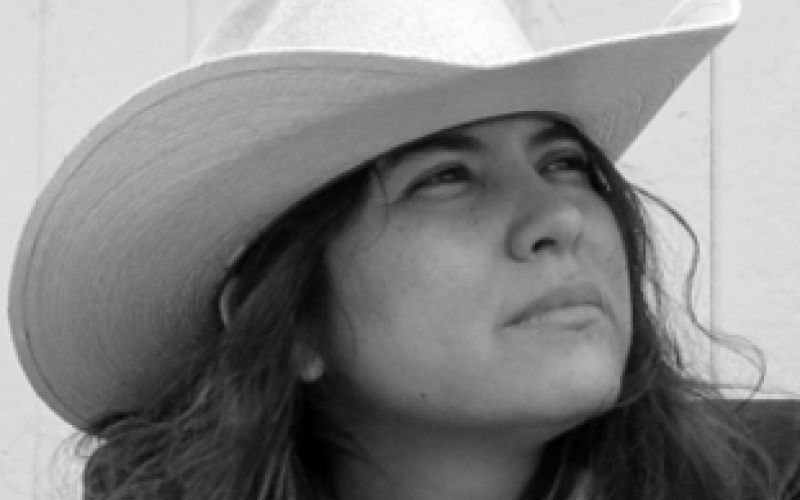
mónica teresa ortiz (2022) is a is a poet and freelance writer born and raised in Texas. Currently, ortiz is a journalist in residence with the Freedomways Reporting Project, an artist in residence with UT Austin's Planet Texas 2050 initiative, and a Texas Folklife Community fellow. Their work has been published in the Coffee House Writer's Project, Scalawag Magazine, Annulet, The Thinking Republic, and is forthcoming in Hayden's Ferry Review.
For the PT2050 artist residency, mónica is working on a film and writing project exploring issues related to water in Texas.
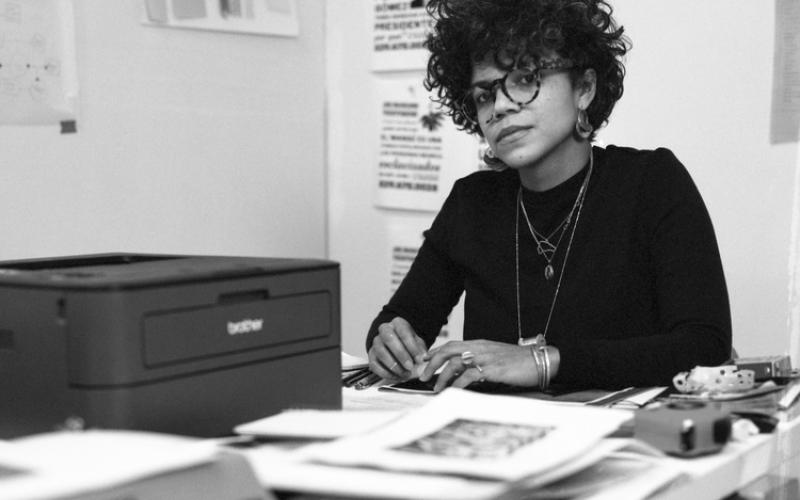
Lizania Cruz (2022) Lizania Cruz is a Dominican participatory artist and designer interested in how migration affects ways of being & belonging. Through research, oral history, and audience participation, she creates projects that highlight a pluralistic narrative on migration. Her work has been exhibited widely and she has held fellowships and residencies including the Laundromat Project and the Center of Book Arts.

The Drag Podcast (2021) is a student-led audio production house in the Moody School of Communications at UT Austin. In 2021-2022, host and producer Aurora Berry worked with Planet Texas 2050 researchers to identify climate-change impacts around Texas to inform a five-series podcast, Planet Texas.
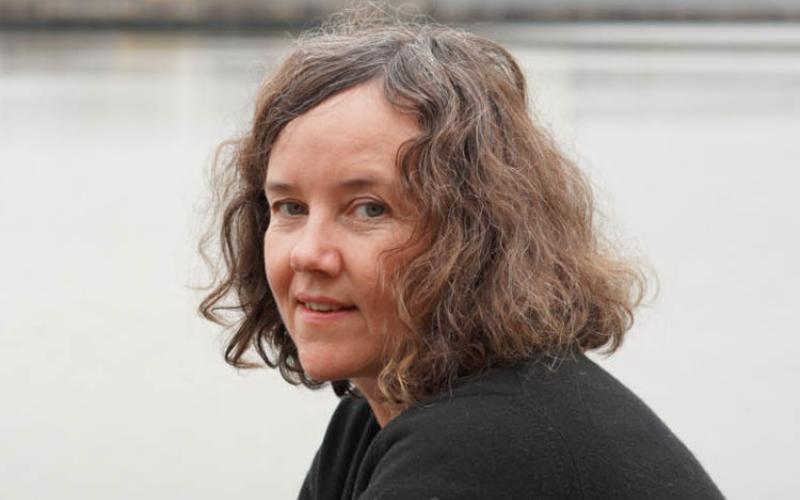
Marie Lorenz's work is rooted in the exploration and narrative of New York City’s waterfronts. Combining psycho-geographic exploration with highly crafted, material forms, Lorenz uses boats to create an uncertain space and bring about a heightened awareness of place. In 2005, she started her Tide and Current Taxi project, taking people around the New York Harbor in a boat built from salvaged materials, using the tide to guide her navigation. She created Graybelt, a multimedia exploration of the Colorado River in 2018 with support from Planet Texas 2050. She is the recipient of many awards and residencies, including the Joseph H. Hazen Rome Prize from the American Academy in Rome. Lorenz received an MFA from Yale.
Creative Collaborations supported by Planet Texas 2050
A Recipe for Action: Courses Against Hunger in Austin
A live immersive performance combining music, dance, and visual art to create a playful feast for its audience.
The multidisciplinary art piece was created to engage audience members in a conversation around the issue of food insecurity in Austin, exploring the question, "what would be possible if everyone in our community was fed?" The piece invited the audience on a journey where art is made and shared using the principles of abundance, generosity, and community-building.
Admission to the event was a donate-what-you-can model, where attendees can choose to donate volunteer time, money, or goods to two partnering organizations, the UT Outpost and the UT Microfarm.
Ventana Ballet (2021/2022): Beautiful World
Planet Texas 2050 supported the Beautiful World, the premier of the original ballet A Million Alien Gospels by Austin-based Ventana Ballet.
Loosely inspired by a poem by Alice Meynell, the ballet presents a vision of spiritual pluralism and cosmic dialogue, exploring psychological openness and demonstrating how a breakthrough in our mindset might happen so simply, just by allowing ourselves to recognize the gifts and blessings always in our midst.
To learn more about the project and its creators please visit:
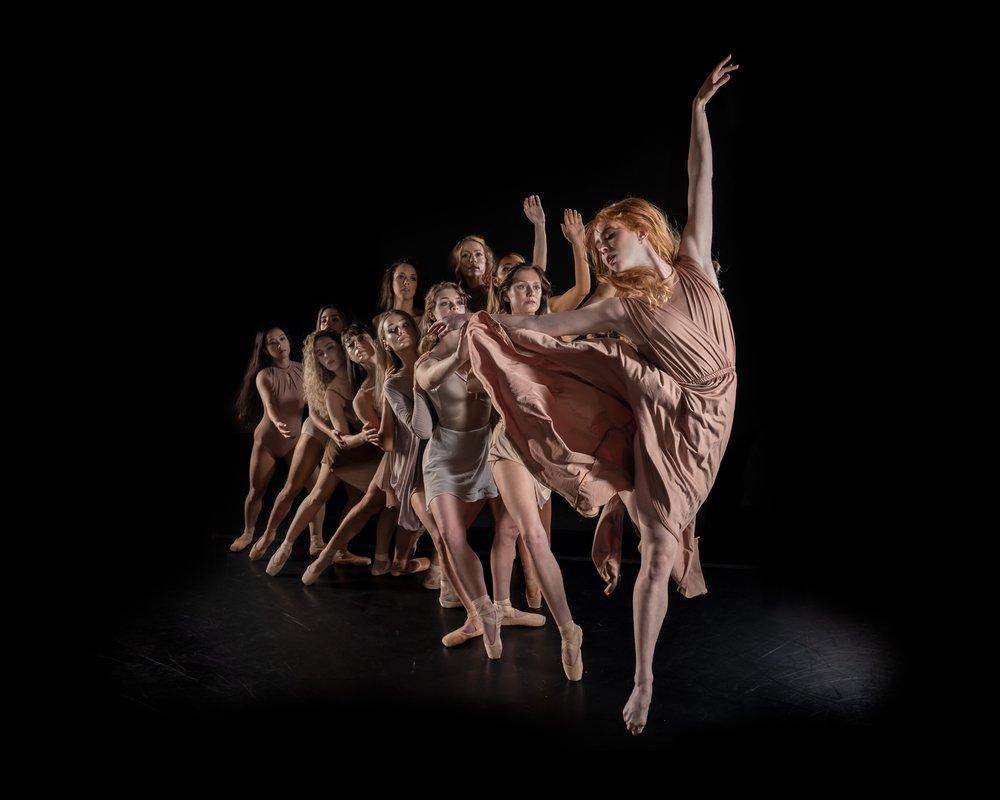
UT Fine Arts Core Studio Collaborations (2022)
In Spring 2022, Planet Texas 2050 worked with artist and Department of Art and Art History faculty member Katy McCarthy to support a series of core studio classroom explorations of issues related to PT2050 research.
Drawing / Conclusions: Students created large-scale drawings using data, GIS, and data visualization as the structure/outline. The repositories used range from fashion industry watchdogs to the City of Austin Data Portal. Through overlaying, replacing, translating, and abstraction, students reinterpret information in hope of helping viewers draw new or more vibrant conclusions.
Interrupting Waller Creek: Students in the time & technology course created an installation in and around Waller Creek consisting of physically printed images and augmented reality. Their intervention sought to provide unexpected experiences in the creek that consider human's relationship to nature.
Interview/Intervene: UT students created short experimental videos based on audio interviews conducted with Planet Texas 2050 researchers and organizers. Topically, interviews discuss the participant’s relationship to ecology and resiliency, but also who they are as people and why this work is important to them.


